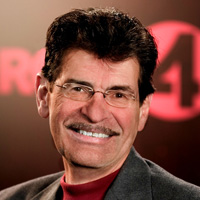Like me, most Americans are dangerously complacent, some are even skeptical, about saving our planet. The mission just hasn't achieved critical mass because it doesn't ring true. Mother Earth really doesn't need us. But we definitely need her.
That clicked for me on a trip down the Colorado through the Grand Canyon. Two inspiring weeks. 225 miles, 47 major rapids and 1.7 billion years. Around the time of the dinosaurs, the river began to carve the earth, revealing its history. The farther we floated, the farther back we descended, all the way to the fundament of ancient earth. Each spectacular striation on canyon walls represents a massive change in the primeval landscape -- the remnants of ancient oceans, extinct organisms, volcanoes, dunes, droughts, floods.
In the 1960s the government started to build a dam which would flood the Grand Canyon. It would have generated electricity, created a huge lake for boaters and fishermen. The Sierra Club went to war, and won, with a campaign that asked, "Should we also flood the Sistine Chapel so tourists can get nearer the ceiling?"
It was a great environmental victory. But it did not "save" the Grand Canyon. It's arrogant to want to. That dam wouldn't have killed the canyon, or even really changed it. Silt might have left another thin stripe before the dam disappeared, at the hands of ourselves or our extinction. Before long, geologically speaking, the canyon would have reverted to its primeval rhythm of wet, dry, hot, cold, sand, sea, stone.
Rescuing a planet sounds like a worthy cause. Philanthropic, like a charity. But it is not the planet we fight for. It's our health, our viability that teeters on the ecological edge.
